Shao-Ming Fei
Circuit encapsulation for efficient quantum computing based on controlled many-body dynamics
Mar 29, 2022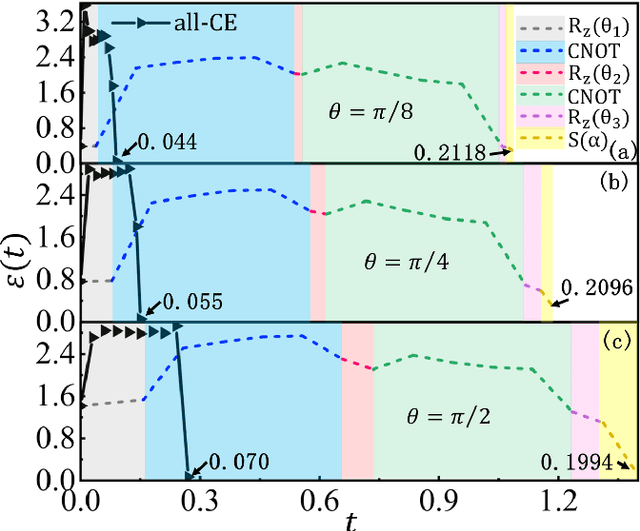
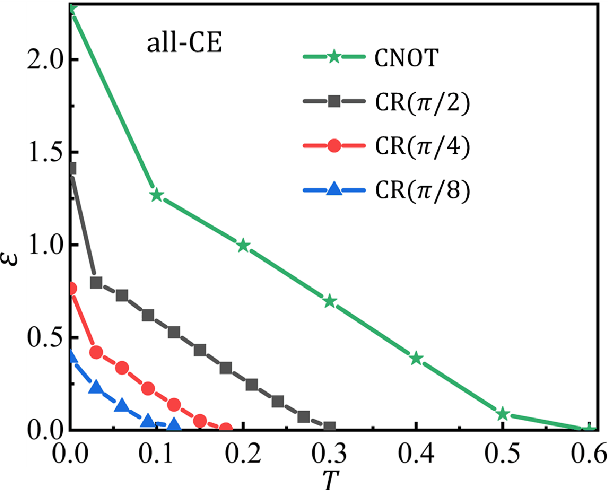
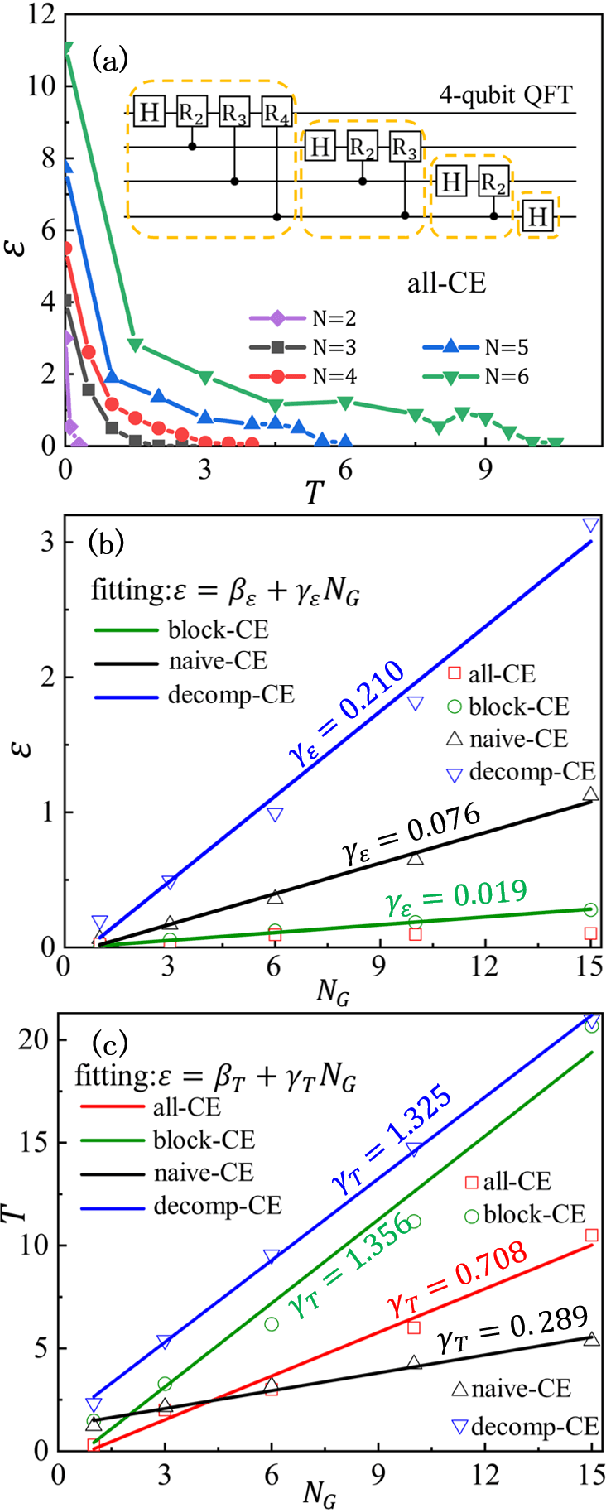
Abstract:Controlling the time evolution of interacting spin systems is an important approach of implementing quantum computing. Different from the approaches by compiling the circuits into the product of multiple elementary gates, we here propose the quantum circuit encapsulation (QCE), where we encapsulate the circuits into different parts, and optimize the magnetic fields to realize the unitary transformation of each part by the time evolution. The QCE is demonstrated to possess well-controlled error and time cost, which avoids the error accumulations by aiming at finding the shortest path directly to the target unitary. We test four different encapsulation ways to realize the multi-qubit quantum Fourier transformations by controlling the time evolution of the quantum Ising chain. The scaling behaviors of the time costs and errors against the number of two-qubit controlled gates are demonstrated. The QCE provides an alternative compiling scheme that translates the circuits into a physically-executable form based on the quantum many-body dynamics, where the key issue becomes the encapsulation way to balance between the efficiency and flexibility.
Quantum Compressed Sensing with Unsupervised Tensor Network Machine Learning
Jul 24, 2019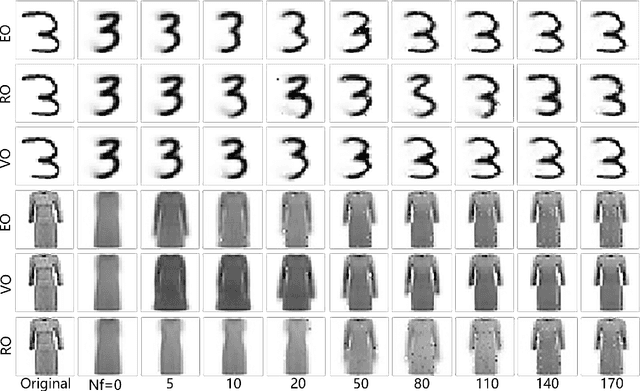

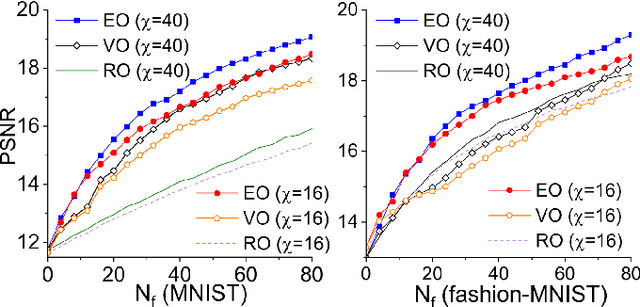
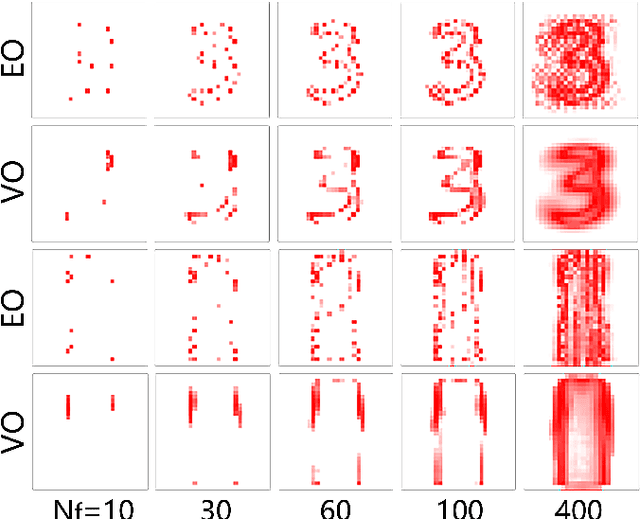
Abstract:We propose tensor-network compressed sensing (TNCS) for compressing and communicating classical information via the quantum states trained by the unsupervised tensor network (TN) machine learning. The main task of TNCS is to reconstruct as accurately as possible the full classical information from a generative TN state, by knowing as small part of the classical information as possible. In the applications to the datasets of hand-written digits and fashion images, we train the generative TN (matrix product state) by the training set, and show that the images in the testing set can be reconstructed from a small number of pixels. Related issues including the applications of TNCS to quantum encrypted communication are discussed.
 Add to Chrome
Add to Chrome Add to Firefox
Add to Firefox Add to Edge
Add to Edge